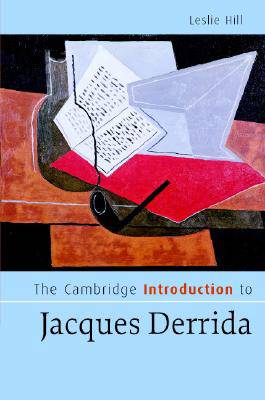
Bedankt voor het vertrouwen het afgelopen jaar! Om jou te bedanken bieden we GRATIS verzending (in België) aan op alles gedurende de hele maand januari.
- Afhalen na 1 uur in een winkel met voorraad
- In januari gratis thuislevering in België
- Ruim aanbod met 7 miljoen producten
Bedankt voor het vertrouwen het afgelopen jaar! Om jou te bedanken bieden we GRATIS verzending (in België) aan op alles gedurende de hele maand januari.
- Afhalen na 1 uur in een winkel met voorraad
- In januari gratis thuislevering in België
- Ruim aanbod met 7 miljoen producten
Zoeken
Omschrijving
Few thinkers of the latter half of the twentieth century have so profoundly and radically transformed our understanding of writing and literature as Jacques Derrida (1930-2004). Derridian deconstruction remains one of the most powerful intellectual movements of the present century, and Derrida's own innovative writings on literature and philosophy are crucially relevant for any understanding of the future of literature and literary criticism today. Derrida's own manner of writing is complex and challenging and has often been misrepresented or misunderstood. In this book, Leslie Hill provides an accessible introduction to Derrida's writings on literature which presupposes no prior knowledge of Derrida's work. He explores in detail Derrida's relationship to literary theory and criticism, and offers close readings of some of Derrida's best known essays. This introduction will help those coming to Derrida's work for the first time, and suggests further directions to take in studying this hugely influential thinker.
Specificaties
Betrokkenen
- Auteur(s):
- Uitgeverij:
Inhoud
- Aantal bladzijden:
- 154
- Taal:
- Engels
- Reeks:
Eigenschappen
- Productcode (EAN):
- 9780521864169
- Verschijningsdatum:
- 25/10/2007
- Uitvoering:
- Hardcover
- Formaat:
- Genaaid
- Afmetingen:
- 159 mm x 229 mm
- Gewicht:
- 362 g

Alleen bij Standaard Boekhandel
+ 291 punten op je klantenkaart van Standaard Boekhandel
Beoordelingen
We publiceren alleen reviews die voldoen aan de voorwaarden voor reviews. Bekijk onze voorwaarden voor reviews.









